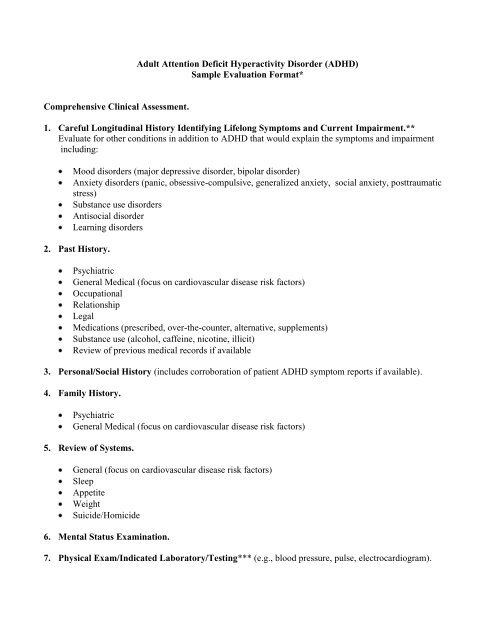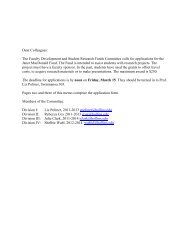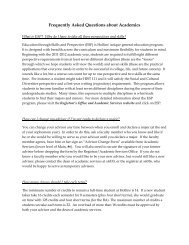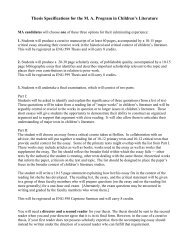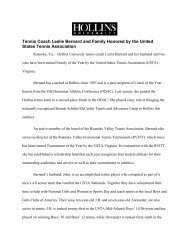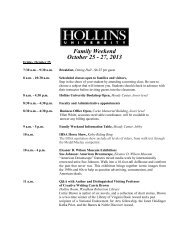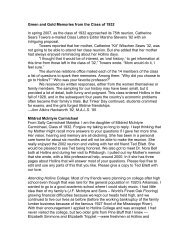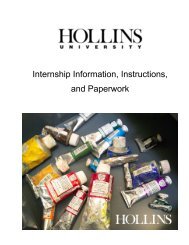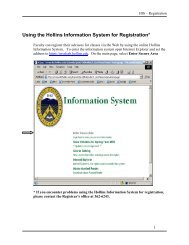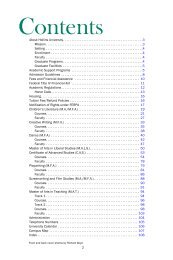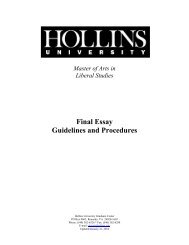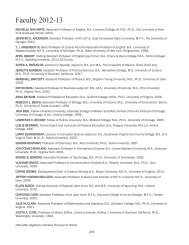Adult Attention Deficit Hyperactivity Disorder (ADHD) Sample ...
Adult Attention Deficit Hyperactivity Disorder (ADHD) Sample ...
Adult Attention Deficit Hyperactivity Disorder (ADHD) Sample ...
You also want an ePaper? Increase the reach of your titles
YUMPU automatically turns print PDFs into web optimized ePapers that Google loves.
<strong>Adult</strong> <strong>Attention</strong> <strong>Deficit</strong> <strong>Hyperactivity</strong> <strong>Disorder</strong> (<strong>ADHD</strong>)<strong>Sample</strong> Evaluation Format*Comprehensive Clinical Assessment.1. Careful Longitudinal History Identifying Lifelong Symptoms and Current Impairment.**Evaluate for other conditions in addition to <strong>ADHD</strong> that would explain the symptoms and impairmentincluding:Mood disorders (major depressive disorder, bipolar disorder)Anxiety disorders (panic, obsessive-compulsive, generalized anxiety, social anxiety, posttraumaticstress)Substance use disordersAntisocial disorderLearning disorders2. Past History.PsychiatricGeneral Medical (focus on cardiovascular disease risk factors)OccupationalRelationshipLegalMedications (prescribed, over-the-counter, alternative, supplements)Substance use (alcohol, caffeine, nicotine, illicit)Review of previous medical records if available3. Personal/Social History (includes corroboration of patient <strong>ADHD</strong> symptom reports if available).4. Family History.PsychiatricGeneral Medical (focus on cardiovascular disease risk factors)5. Review of Systems.General (focus on cardiovascular disease risk factors)SleepAppetiteWeightSuicide/Homicide6. Mental Status Examination.7. Physical Exam/Indicated Laboratory/Testing*** (e.g., blood pressure, pulse, electrocardiogram).
<strong>Adult</strong> <strong>ADHD</strong> <strong>Sample</strong> Evaluation FormatJanuary 30, 2009Page No. 2_________8. <strong>Adult</strong> <strong>ADHD</strong> Rating Scales [e.g., <strong>Adult</strong> <strong>ADHD</strong> Self-Report Scale (ASRS); Conners’ <strong>Adult</strong> <strong>ADHD</strong>Rating Scales (CAARS)].9. Other Testing (e.g., psychological/neuropsychological testing).10. Assessment/Diagnosis.11. Treatment /Follow-up Plan (e.g., initial follow-up +/- 1 month; periodically thereafter).12. Consultation with <strong>ADHD</strong> experienced practitioner as needed.13. Disability services evaluation as needed.14. Fact sheet for stimulant use for <strong>ADHD</strong>.15. Review of important safety information regarding stimulant use (e.g., avoidance in symptomaticcardiovascular disease, moderate to severe hypertension, hyperthyroidism, glaucoma, during orwithin 14 days of MAOI use).16. Practitioner policy for stimulant misuse; lost or stolen stimulant prescription.<strong>Sample</strong>: STUDENT STIMULANT MISUSE POLICY:Stimulants are Schedule-II drugs, which are controlled medications by the DEA (DrugEnforcement Administration). This means your doctor cannot give refills for your stimulantmedication unless a new prescription is written for each refill. Schedule-II medications cannotbe refilled by telephone. Misuse of stimulant medications is a common and recognizedconcern in the USA. THIS OFFICE WILL NOT TOLERATE MISUSE. EVEN THEAPPEARANCE OF MISUSE IS ENOUGH JUSTIFICATION TO CEASESTIMULANT TREATMENT. THERE WILL BE NO REFILLS GIVEN FOR LOSTOR STOLEN PRESCRIPTIONS. Do not give your prescription medication to anyone.Keep your medication in a safe place where others do not have access.* Format is intended as a guideline and not as a specific way to practice. It is an example drawn fromclinical practice experience and current scientific literature. The prescribing practitioner should useindividual professional judgment.** Impairment defined as relative to an average-functioning individual.*** There are no across-the-board recommendations for laboratory testing or diagnostic examinations foradult <strong>ADHD</strong>. The prescribing practitioner may request testing as individually indicated and appropriate.NCAA/01/30/2009/MEW:rhb


